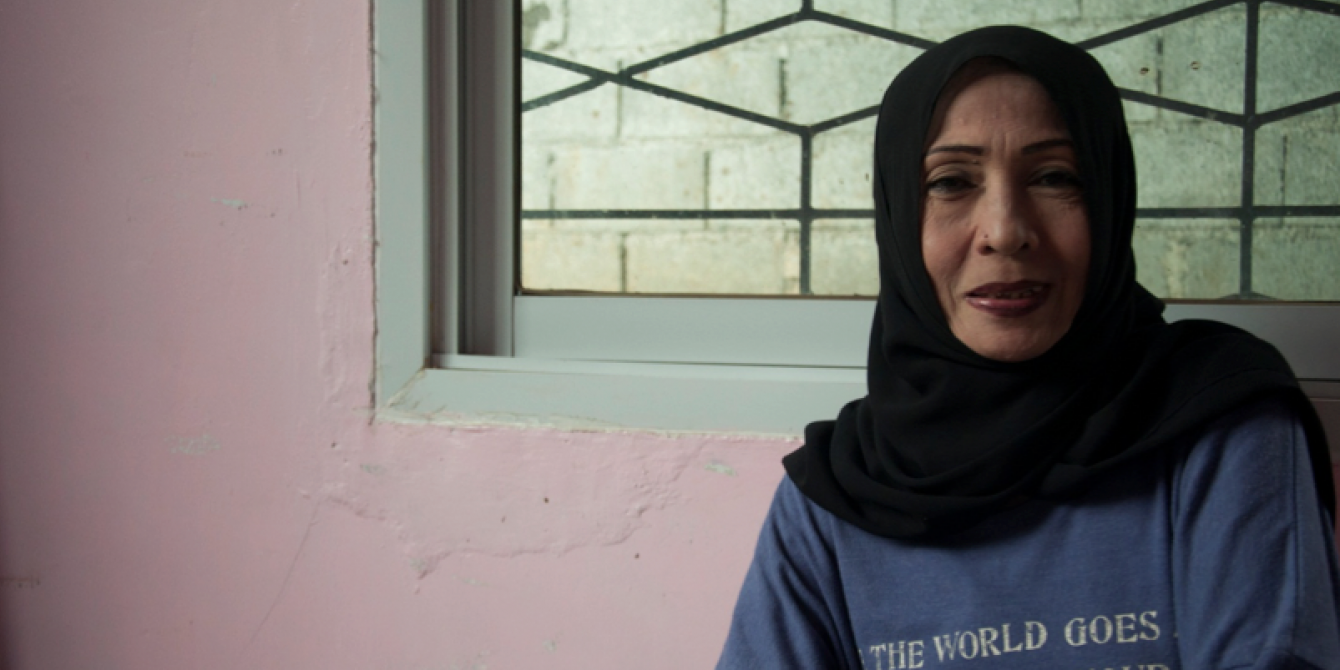
Mrs. Bairona Langco, 44, from Marawi City
Relief is helpful, but home is far away
Blog contribution by Christelle Delvo, Initiatives for Dialogue and Empowerment through Alternative Legal Services, Inc. (IDEALS, Inc.)
Bairona Langco, a 44-year-old mother of five, was born in Marawi City and has lived there her whole life. The longest time she's been away was spent the past three months at a relative’s home in Maria Cristina, Iligan City. Mrs. Bairona, as she wants to be called, is one of the more than 350,000 internally displaced persons (IDPs) currently in tent and home-based evacuation sites.
On the day of the siege on May 23, she opened her boutique that sells bags and dresses like it was an ordinary day. Her seven-year-old son would spend the rest of the day after school in the store’s second floor, with his computer.
But in the afternoon, there was an alarm call. People were running in the streets yelling, “ISIS! ISIS!” Her son ran downstairs, crying and insisting that they go home. She wanted to call home but couldn’t find her cellphone. Her neighbors warned her that home was no longer an option because of the fighting in the streets. She escaped the clash between government and Maute troops with four of her sisters and her children.
She was gripped with fear. “Wala kaming mapuntahan. Natatakot sa ISIS o Maute o sundalo. (We had nowhere to go. We were scared of ISIS, the Maute or the soldiers)." She spent the night at a house next to her shop, but she barely slept due to the sound of gunfire. She later learned that the Maute group set Dansalan College and the Marawi City Jail on fire.
For three months that she has been staying in a room with her sisters and their families in Maria Cristina, Mrs. Bairona frequently dropped by the barangay hall to visit her family. She also goes to the Maria Cristina National High School, where her children eventually transferred, just to see them.
“Makikita ko ‘yung anak ko, para hindi ko matatandaan ‘yung mga nangyari sa amin. (I see my child so I’ll forget what happened to us)." Otherwise, she says she'll go mad with fear.
Her eldest daughter, who found employment in a Watsons store, looks after her husband, who is confined in a Manila hospital for a stroke. To her husband's frequent calls to ask how they are, she would say, “Ito. Buhay pa rin. (Here, still alive.)"
Mrs. Bairona was thankful for the relief goods from the DSWD, which fulfils basics such as rice and sardines and clothes for her and her children.
But when asked about the life she left behind in Marawi, her nervousness betrays her. She worries about the difficulties of her school-age children in coping with the situation. When her youngest asked where they were going, she told the boy there was no Marawi to come home to anymore. “Wala na ‘yung school. Basag na basag na ang Marawi. (The school isn’t there anymore. Marawi has been shattered)."
She dreads the thought of her children going to school without snacks or pocket money and in borrowed school uniforms, which is not what they’re used to. Even though the school launched its own relief drive, her 14-year-old son would come home empty-handed. He says he is too shy to admit he is a bakwit (displaced evacuee). She tells him, “Magtiis ka, anak. May oras na makakabawi tayo. (Please endure it for now, son. We’ll get back on our feet soon.”)
Mrs. Bairona has never been back to Marawi since the day they fled. The last thing she heard about her house was that a neighbor saw their front door open.
Looting and damage to property have been documented by humanitarian response missions such as the ones spearheaded by IDEALS, Inc. in partnership with the Regional Human Rights Commission of Lanao Del Sur and Oxfam as some of the top legal concerns raised by IDPs. Data from legal missions done in 54 barangays indicated 3,110 cases of damage to property and 855 cases of looting.
Thousands of IDPs like Mrs. Bairona had to endure the loss of homes, livelihood and schools. Now that they’ve lost what they’ve long worked hard for, what they have are the only things they receive —a relative’s spare room, relief goods from government and private organizations and donated bags and clothes.
But home remains far away.#

 Follow us on Facebook
Follow us on Facebook Instagram
Instagram Follow us on Twitter
Follow us on Twitter LinkedIn
LinkedIn